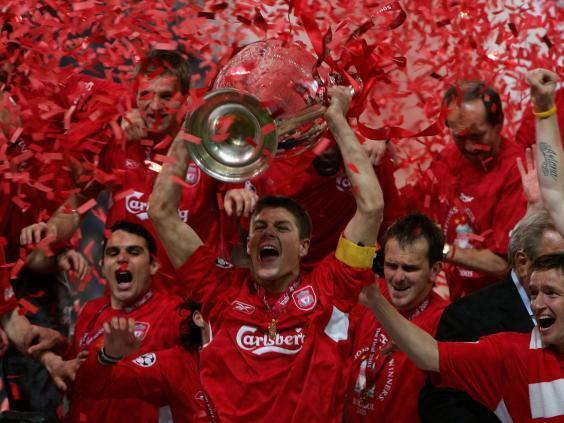Mea Culpa: Steven Gerrard, a semi-mythical person from ancient times
A footballer’s retirement, Melania Trump’s dresses and homing pigeons in this week’s Independent


My predecessor Guy Keleny used to write against using the word “legend” to describe people who are really good at something and still alive. We are still at it, of course. On Thursday we carried the headline, “Liverpool legend Steven Gerrard announces his retirement from football.” Still, for all I know about the game, Gerrard might as well be a semi-mythical person from ancient times.
Dress fight: Fashion, according to the opening of a news story on Wednesday, “has become a surprisingly key battle line in the rise of Donald Trump”. This was a curious metaphor for an election that is already over (bar some of the counting). In any case, the fashion business would not be the “line”, which implies a row of soldiers drawn up to face an opposing line. Fashion could be the battleground, I suppose, if we had to use a military-based cliché.
The next sentence did not make matters any better: “This has been particularly pointed in regards to designers.” So the battle line has now become pointed, shaped like an arrow as it advances on the enemy. No wonder the tell-tale indicator, “in regards to”, has appeared. Whenever a phrase such as “when it comes to” or “in respect of” crops up, it is time to rewrite or delete.
It was in any case a pretty odd way to report that designers have taken different views on whether they would be prepared to make clothes for Melania when she becomes First Lady.
Groundspring of words: We described the House of Lords in an editorial last Friday as a “fund of great wisdom and knowledge”. I don’t think much of the House of Lords, but I thought this was a good phrase, portraying the upper chamber as a storehouse on which the nation could draw, and avoiding the obvious and too-familiar figure of speech.
That did not prevent a discussion in the office about the “font of (all) knowledge”. I thought it was a mistaken form of “fount of all knowledge”. According to Google, the “font” form is more common online, although in books “fount of all knowledge” is used more frequently.
I assumed it should be fount because a font is basin used for baptism, whereas a fount is a spring or fountain. But the Oxford Dictionary says that they come from the same root, Latin fons, spring.
I should have known that. What is more surprising is that the two words come from Latin by different routes: fount, it turns out, was a 16th-century back-formation from fountain, following the pattern of mount and mountain. Well, I know now.
Pigeon-English: We reported on Sunday on the launch of a satellite that will improve weather forecasting, especially the prediction of hurricanes, storms and tornadoes. “Its lightning mapper will hone in on the storms,” we said, repeating a common confusion of similar-sounding words that appeared in an agency report.
As Bernard Theobald and Richard Harvey wrote to point out, we meant “home in”. The phrase, presumably from homing pigeons, means to move towards a target, but it doesn’t make a lot of sense so you can see why a similar word, “hone”, meaning to sharpen or refine, is often substituted. However, as “hone” is from Old English for stone, especially a whetstone used for sharpening a knife, it makes even less sense as a metaphor, so perhaps we should stick with the pigeons.








Join our commenting forum
Join thought-provoking conversations, follow other Independent readers and see their replies